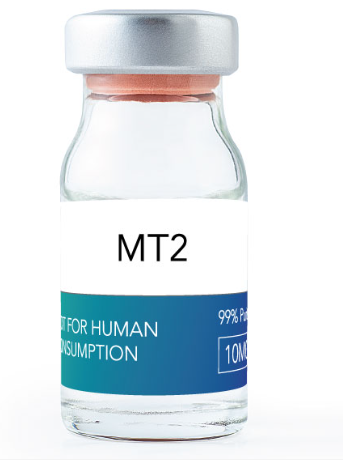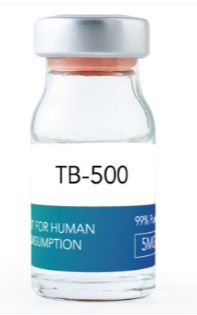The Role of Peptides in Muscle Repair and Recovery
The process of muscle repair and recovery is crucial for maintaining optimal performance and overall health. This process involves several complex physiological mechanisms that allow damaged muscle fibers to heal and adapt to new stressors. One important aspect of muscle repair and recovery is the role of peptides. Peptides are short chains of amino acids that play a crucial role in many physiological processes, including muscle repair and recovery. In this article, we will explore the role of peptides in muscle repair and recovery and how they can benefit athletes and individuals looking to improve their muscle function and recovery.
What are peptides?
Peptides are short chains of amino acids that are linked together by peptide bonds. Peptides are naturally occurring molecules found in many tissues and fluids throughout the body. They are involved in a wide range of physiological processes, including muscle repair and recovery. Peptides can be produced naturally by the body, or they can be synthesized in a laboratory for research or medical purposes.
Peptides and Muscle Repair
Muscle damage is a natural consequence of physical activity and exercise. When muscle fibers are subjected to stress, such as weight lifting or running, small tears can occur in the muscle tissue. These tears can cause inflammation and soreness, which can impede muscle function and performance. However, the body has natural mechanisms for repairing these tears and restoring muscle function.
peptides play an important role in muscle repair by regulating inflammation and promoting the growth and differentiation of muscle cells. One peptide that has been extensively studied for its role in muscle repair is insulin-like growth factor MT2 10MG is a peptide hormone that is involved in the growth and repair of muscle tissue. It stimulates the proliferation of satellite cells, which are a type of stem cell that helps repair damaged muscle fibers. IGF-1 also plays a role in reducing inflammation, which can help speed up the healing process.
Another peptide that is important for muscle repair is transforming growth factor beta (TGF-β). TGF-β is a peptide that is involved in the regulation of cell growth and differentiation. It plays a critical role in muscle repair by stimulating the formation of new muscle fibers and promoting the differentiation of satellite cells into mature muscle cells.
Peptides and Muscle Recovery
Muscle recovery is the process by which muscles recover from the stress of physical activity and exercise. The recovery process is crucial for optimizing muscle function and performance. Peptides play an influential role in muscle recovery by promoting protein synthesis, reducing muscle breakdown, and improving muscle function.
One peptide that has been shown to be effective in promoting muscle recovery is beta-alanine. Beta-alanine is a non-essential amino acid that is involved in the production of carnosine, a dipeptide that is influential for muscle function. Beta-alanine supplementation has been shown to increase muscle carnosine levels, which can improve muscle function and reduce fatigue. Beta-alanine supplementation has also been shown to increase muscle protein synthesis, which can aid in muscle recovery.
Another peptide that is important for muscle recovery is branched-chain amino acids (BCAAs). BCAAs are a group of three essential amino acids that are involved in protein synthesis and muscle recovery. BCAAs have been shown to reduce muscle breakdown and promote muscle protein synthesis, which can help speed up the recovery process.
Peptide Supplements and Muscle Repair and Recovery
Peptide supplements have become increasingly popular among athletes and individuals looking to improve their muscle function and recovery. Peptide supplements can come in a variety of forms, including capsules like GHRP-6 5MG, powders, and liquids. They can be taken before or after exercise, or throughout the day to support muscle repair and recovery.
One popular peptide supplement is collagen peptides. Collagen is a protein that is found in connective tissues throughout the body, including in muscles, bones, and skin. Collagen peptides are derived from collagen and have been shown to have a positive impact on muscle repair and recovery. Collagen peptides are rich in amino acids, including glycine, proline, and hydroxyproline, which are important for building and repairing muscle tissue.
Collagen peptides have been shown to stimulate the production of collagen in the body, which can improve muscle strength and flexibility. Collagen peptides have also been shown to reduce joint pain and inflammation, which can improve overall muscle function and recovery.
Another popular peptide supplement is creatine. Creatine is a naturally occurring peptide that is involved in energy production in the body. Creatine supplementation has been shown to improve muscle strength and endurance, which can aid in muscle repair and recovery.
Other peptide supplements that have been shown to have a positive impact on muscle repair and recovery include glutamine, arginine, and citrulline. These peptides have been shown to improve muscle protein synthesis, reduce muscle breakdown, and enhance muscle recovery.
Safety Considerations
While peptide supplements can be beneficial for muscle repair and recovery, it is important to use them safely and responsibly. Peptide supplements should only be used under the guidance of a healthcare professional or qualified coach. Peptide supplements can have side effects, including digestive issues, headaches, and dizziness. Some peptides can also interact with certain medications, so it is influential to talk to a healthcare professional before using peptide supplements.
Conclusion
Peptides play a crucial role in muscle repair and recovery. They regulate inflammation, promote the growth and differentiation of muscle cells, and improve muscle function. Peptide supplements, such as collagen peptides, creatine, and BCAAs, can be beneficial for individuals looking to improve their muscle repair and recovery. However, it is influential to use peptide supplements safely and responsibly, under the guidance of a healthcare professional or qualified coach. By incorporating MGF 2MG peptides into a comprehensive muscle repair and recovery plan, individuals can optimize their muscle function and performance.



Comments
Post a Comment